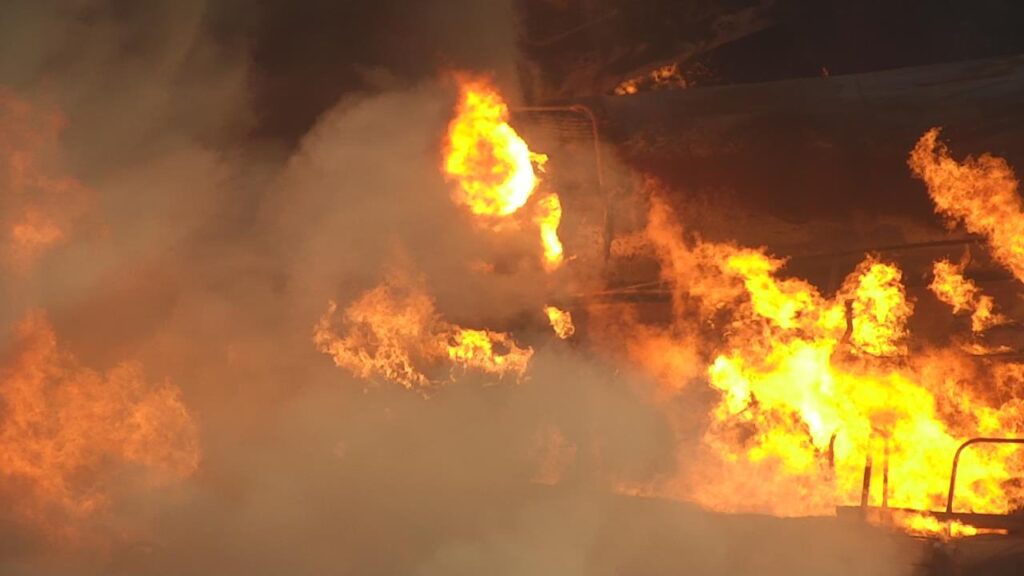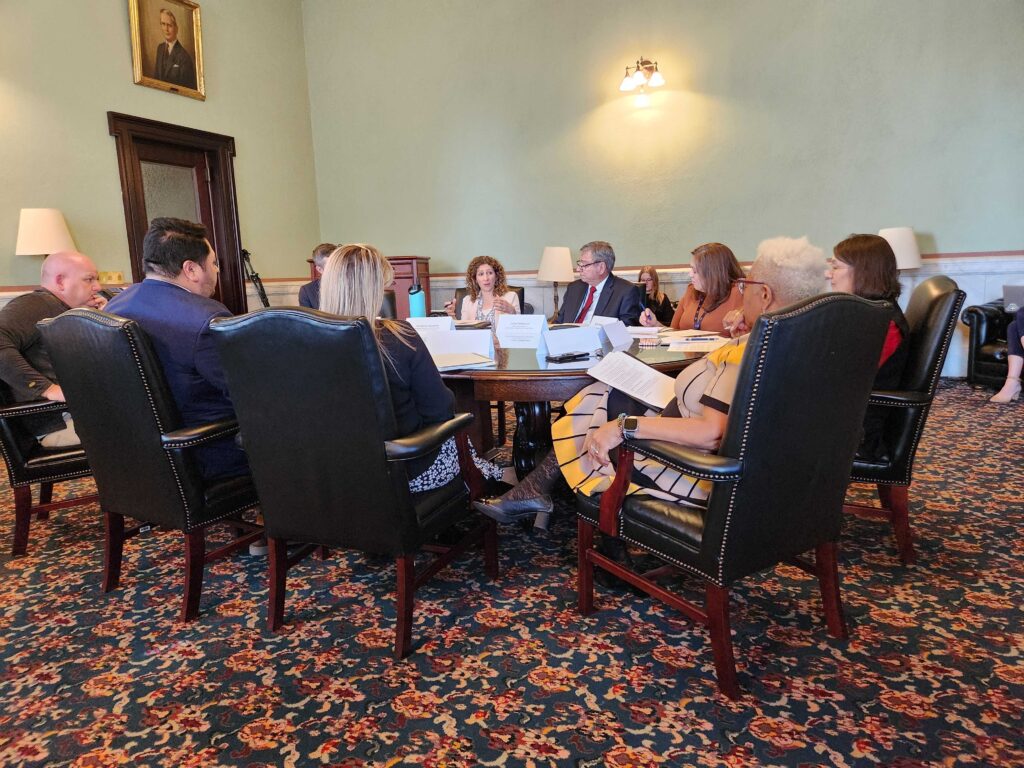Blog
Tagged In: Clean Water, East Palestine, environmental justice, Northeast Ohio
One Year Later: Ohio Toxic Train Derailment
Chris Colón, Northeast Ohio Regional Director, February 2, 2024

At the Ohio Environmental Council, we believe that every Ohioan deserves to breathe clean air, drink clean water, and play without worry in their communities. Accidents like the Norfolk Southern train derailment and toxic chemical spill jeopardize Ohioans’ ability to live safe and healthy lives and perpetuate historical environmental injustices in our state.
Following the train derailment, the OEC pledged to monitor the impact of the train derailment and toxic chemical release on the community, and advocate for long-term regulatory and policy solutions to ensure an environmental disaster like this never happens again.
As we reflect on our pledge, we continue to stand in solidarity with our partners fighting for transparency, accountability, and justice.
Local Organizations to Support
Since the train derailment, there have been several local organizations and grassroots groups working to support the residents of East Palestine and surrounding communities. We encourage you to learn more and support their ongoing efforts:
- Breathe Project
- Brightside Project
- Fair Shake Environmental Legal Services
- River Valley Organizing
- The Way Station
- The Unity Council for the East Palestine Train Derailment
Public Records Requests
In February 2023, as part of our effort to hold Norfolk Southern accountable for its actions surrounding the East Palestine train derailment, the OEC legal team filed public records requests with multiple state and federal agencies. It has taken significant time for the agencies to respond to those requests, but in mid-January, we started receiving portions of those public records. The agencies, specifically Ohio EPA and U.S. EPA, indicate they will be providing responsive records periodically over the next few months.
We believe good governance of our environmental and emergency agencies requires transparency in decision making, especially when working with large corporations like Norfolk Southern. Our legal team is reviewing these public records, and as we review them, we will share the records on our website for the public to view as well—though we will redact the personal information of private individuals who show up in those public records. If we find key records that reach the heart of key moments of the story, especially the decision to burn off the chemicals from the overheating cars, we will highlight those details as we share the public records.
Lawsuit Updates
Over the past year, both public and private lawsuits have been filed against Norfolk Southern in an effort to hold the company accountable for its actions. The Ohio Attorney General took action against Norfolk Southern directly, suing the company under a variety of environmental laws as well as making common law claims for trespass, negligence, and nuisance. The Ohio Attorney General’s lawsuit was combined in court with a similar lawsuit filed by the Department of Justice. In addition, thirty-one class action lawsuits have been consolidated in the Northern District of Ohio and are currently moving through initial procedural steps in court. We are hopeful that these legal actions hold Norfolk Southern accountable, but the damages from these cases should ultimately flow to benefit East Palestine (and the surrounding community) directly.
Executive and Agency Updates
There have been a multitude of executive updates and agency actions to support clean up efforts in East Palestine following the train derailment and to prevent a disaster like this from ever happening again:
- President Biden East Palestine Update (1/2024)
- Gov. DeWine East Palestine Update (1/2024)
- U.S. EPA East Palestine Resource Page
- Ohio EPA East Palestine Resource Page
- Ohio Emergency Management Resource Page
Legislative Updates
In the aftermath of the train derailment, the OEC organized a legislative and press briefing where experts and community advocates emphasized the need for increased environmental and health testing, stricter rail safety regulations, more resources for first responders and emergency response legislative reforms.
At the federal level, Congress has failed to take action on bills, including the bipartisan Railway Safety Act that would increase safety requirements for railroads. The legislation, introduced by U.S. Senators Sherrod Brown and J.D. Vance, passed out of committee in May but has not been taken up by the Senate for a full vote.
At the state level, legislators took some action to improve safety standards for rail operations in Ohio. In March of 2023, House Bill 23 (HB 23), the two-year transportation budget bill, was signed into law, including rail safety provisions. These provisions required two-person crews on trains and strengthened requirements for wayside detectors; however, the two-person crew requirement was challenged by industry groups and is still pending.
Environmental and community groups called on lawmakers to pass emergency response legislation to better equip communities in the event of a disaster, like the train derailment. At this time, this legislative effort is stalled. We believe it is essential that policies are put in place to ensure regulated entities during emergencies don’t make decisions—the regulators and emergency responders make the decisions. And there should be clear penalties for regulated entities who act unilaterally outside the chain of command in emergency situations.
The OEC recommits to monitoring the impact of the train derailment and toxic chemical release on the community. We will continue advocating for long-term regulatory and policy solutions to ensure an environmental disaster like this never happens again.

